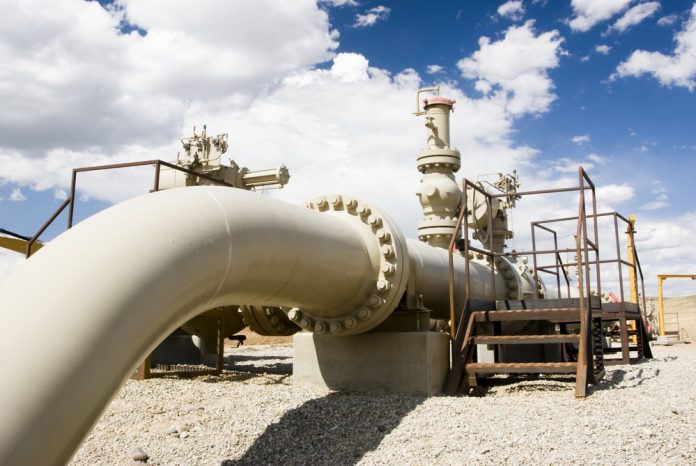Islamabad: The first meeting of the reconstituted Economic Coordination Committee (ECC) has been called on Tuesday, by the PM Shahid Khaqan Abbasi.
The meeting is expected to discuss issues on various fronts with the prime focus area being the oil and gas sector. The deregulation of diesel pricing and reallocation of natural gas to domestic consumers will also come under discussion.
PM also wants power plants to start running on Liquefied Natural Gas (LNG) instead of furnace oil, which could help reduce the import bill of the country.
It had been reported two weeks ago, that the Economic Coordination Committee (ECC) was mulling severing gas supplies to four fertilizer plants in Punjab.
The diversion of gas supply from these four fertilizer plants to consumers is expected to bolster supplies to end consumer, the government hopes. This may help in easing the woes of consumers in Punjab, who have faced the brunt of gas loadshedding in the last few years during winters.
During the PPP tenure, these four fertilizer plants had been started providing with domestically produced gas. Since these fertilizer plants are said to have switched to imported liquefied natural gas (LNG) for their operations, the government has formulated a plan to withdraw 155 million cubic feet of gas per day (MMCFD) from them.
Sui Southern Gas Company (SSGC) and Sui Northern Gas Pipelines (SNGPL) are expected to be re-allocated this gas for supplying forth to end consumers.
The four fertilizer plants which are recipients of this locally produced gas are; Dawood Hercules which is receiving 40 MMCFD gas, 58 MMCFD to Pak-Arab Fertilizers, 25 MMCFD to Agritech Limited and 79 MMCFD gas to Engro Fertilizers.
Tuesday’s meeting of the ECC is expected to take up two summaries about de-regulation of high speed diesel (HSD) prices and the oil industry.
The deregulation proposal included a suggestion for marketing HSD of Euro-IV and V standards, rise in commission for dealers and oil marketing companies (OMCs) on selling of POL products.
In May. Oil Companies Advisory Council (OCAC) which is the representative of several OMC’s and refineries had shot down this proposal from the Ministry of Petroleum and Natural Resources.
As per sources in the petroleum ministry, making such a transition to higher grade HSD wasn’t cost-beneficial. said OCAC. According to OCAC, it took 16 years in Europe to move from Euro-I to Euro-V and Euro-II. Euro-II was introduced in January of this year to help curb pollution and ensure its effect on the environment is beneficial.
All these higher-grade fuels being promoted are expensive but considered environment friendly and till recently the HSD being used in Pakistan had 0.5pc sulphur content which produced 5,000ppm. Now it has been switched to Euro-II using 0.05pc Sulphur content producing 500ppm. and Pak-Arab refinery are already producing this fuel. Once this process of switching is done, 85pc of the country’s HSD pool would be Euro-II compliant.
The second summary relates to seeking an increase in profits margins of OMCs and dealers via prices of POL products.
OMCs are seeking a revision of 33 paisa per litre in their margins and for dealer commission on petrol in light of inflation. Petroleum ministry also sought a deregulation in the price of high-speed diesel (HSD) or an increase in its margin by 16 paisa and 14 paisa per litre respectively.
This increase in margins being sought by the relevant stakeholders is considered as a move to convince the OMCs to invest in increasing their storage capacity to help meet the rising fuel demands of the country.
However, this move is being opposed by the Planning Commission and the Oil Gas and Regulatory Authority (OGRA), which firmly believes this will result in a mafia being constituted and misuse of money.
In June, it had been reported that OGRA and the Planning Commission had deemed this move as controversial, giving an example of the year 2000, when it was proposed to deregulate the oil sector. As per OGRA, it never led to any investment in improvement of storage capacity but enabled the OMC’s to earn higher profitability to the tune of billions of rupees.
The ECC will also take up the dispute between OGRA and Petroleum Ministry on fixation of wellhead gas price for Uch field.
Uch-II, a 400MW power plant located in the area of Dera Murad Jamali, Balochistan is being provided gas from the Uch field since 2013 under a provisional agreement.
Uch-II started receiving gas supply after Oil and Gas Development Company (OGDC) and Uch-II power plant management was able to reach an understanding on the gas pricing formula on 18pc internal rate of return (IRR). Gas price agreement (GPA) was reached in October 2013.
The dispute has raged on since October 2013 when OGDC forwarded the agreement inked to OGRA in order to notify the Uch wellhead gas price which was declined on grounds that it could only issue the gas price agreed with the government of Pakistan and not the one agreed upon between OGDCL and Uch-II power plant management.
As a result of this dispute, National Electric Power Regulatory Authority (NEPRA) had failed to ascertain the fuel tariff which constitutes as a critical part of energy price of UCH-II power plant. This row resulted in lesser payments being received by OGDCL for the gas being supplied to UCH-II power plant.




